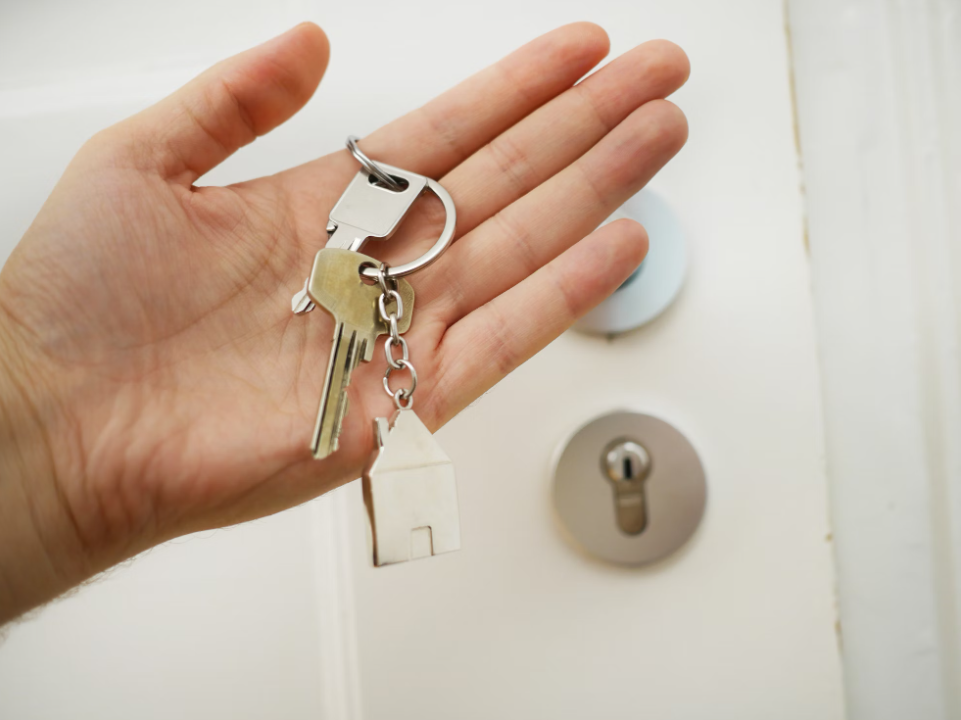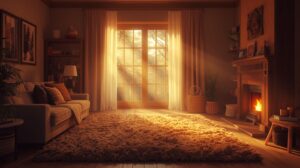
Living alone can be empowering and liberating, but it also comes with its own set of challenges, particularly when it comes to home safety. Whether you are a young professional, a student, or simply prefer the privacy of living solo, it’s important to take proactive steps to protect yourself and your home. In this article, we will discuss 9 essential safety tips to help you feel secure and confident in your living space.
Install a Security System
One of the most effective ways to protect your home when living alone is by installing a security system. This can include cameras, alarms, and motion sensors that can deter potential intruders and alert you in case of any suspicious activity.
Consider your specific needs, such as the size of your home, your lifestyle, and any particular vulnerabilities. Many systems now offer customizable options, allowing you to tailor your security precisely to what makes you feel safest, including the ability to add more sensors or cameras as needed. The upfront investment in a security system can provide invaluable peace of mind, knowing that you’ve taken a significant step to safeguard your home and personal safety.
Get to Know Your Neighbors
Building a good relationship with your neighbors can provide an extra layer of security. They can keep an eye on your property when you’re away and alert you if they notice anything out of the ordinary.
Knowing your neighbors isn’t just about having a familiar face to say hello to; it’s about creating a supportive community network. Engage in neighborhood activities or events to naturally foster relationships. These connections can be particularly useful in emergency situations, or simply for the reassurance of having someone nearby who is looking out for you. Remember, a connected community is a strong deterrent against crime, making the effort to know your neighbors a valuable investment in your personal and home security.
Keep Doors and Windows Locked
It may seem like common sense, but many break-ins occur due to unlocked doors or windows. Investing in high-quality locks and securing all entry points significantly reduces the risk of unauthorized entry. Consider adding deadbolts to your doors and locks on your windows, especially those that are accessible from the ground or a fire escape. Make it a habit to always lock up before leaving the house or going to bed. Regularly checking the integrity of your doors and window frames for signs of wear or tampering can also help in maintaining a secure living environment.
Invest in Good Lighting
Adequate lighting around your home can help deter burglars and make it easier for you to see any potential threats. Consider installing motion-sensor lights outside your entryways and pathways. Additionally, utilizing timers for your indoor lights can further enhance home security when living alone. Timers can create the appearance that someone is home, even when you’re not, which is a powerful deterrent to potential intruders. By setting lights in living rooms, bedrooms, or kitchens to turn on and off at various times throughout the evening, you mimic regular household activity. This strategy is especially useful if you often return home after dark or plan to be away for an extended period.
Don’t Advertise That You Live Alone
Avoid sharing too much personal information with strangers or on social media platforms that could indicate you live alone. Be discreet about your living situation, especially when interacting with delivery personnel, service providers, or new acquaintances. You don’t need to explicitly mention that you live alone; instead, refer to housemates or family members in conversation, even if fictitious, to suggest you are not the sole occupant. This tactic can be particularly effective when talking to tradespeople or during casual conversations where your living situation might come up. Remember, the less information potential intruders have about your living situation, the safer you are.
Conduct Regular Security Assessments
Regular security assessments are crucial for maintaining a safe living environment when you’re living alone. These evaluations can help you identify potential vulnerabilities around your home that could be exploited by intruders. Make sure to walk around your property to check for broken locks, malfunctioning security systems, or exterior lights that need replacement. Pay special attention to any overgrown bushes or trees that might provide concealment for burglars.
Additionally, consider hiring a professional every few years to conduct a more thorough assessment. They can offer expert advice on how to improve your home security based on the latest technology and safety standards. Conducting these assessments ensures that your safety measures remain effective and up-to-date, providing you with peace of mind in your living space.
Have an Emergency Plan
Create a plan for what to do in case of emergencies such as fires, break-ins, or medical emergencies. Make sure you have important contact numbers saved in your phone and know where fire extinguishers and first aid kits are located in your home.
Assembling a basic emergency kit equipped with essentials such as water, non-perishable food, a flashlight, batteries, and a first-aid kit is a prudent measure. Keeping this kit in an easily accessible location ensures that you’re prepared not only for potential intrusions but for any nature of emergency that might arise while living alone.
Keep Valuables out of Sight
Avoid displaying expensive items such as jewelry, electronics, or cash near windows where they can be easily seen from outside. Be mindful of what is visible during video calls, as these glimpses into your home can unintentionally showcase valuable items to a broad audience, including potential intruders who may be lurking on public forums or hacked accounts.
Additionally, consider investing in a safe for storing valuable items securely. The placement of your safe is important; it should be anchored securely to the floor or wall in a location that isn’t obvious to anyone who may gain unauthorized access to your home. The goal is to ensure that even if someone were to break into your home, finding and accessing your most treasured or valuable items would be as difficult as possible.
Trust Your Instincts
Finally, always trust your gut feeling when it comes to safety concerns in your home. If something feels off or suspicious, don’t hesitate to call the police or ask for help from a trusted friend or neighbor.
Protecting your home when living alone doesn’t have to be overwhelming or complicated. By following these 9 essential safety tips and staying vigilant about potential threats, you can create a secure environment that gives you peace of mind knowing that you are taking proactive steps to protect yourself and your belongings. Remember that safety should always be a top priority when it comes to maintaining independence while living alone. Stay safe!


